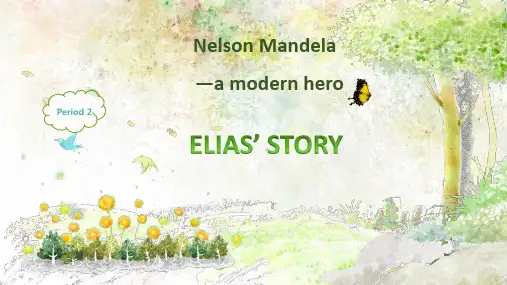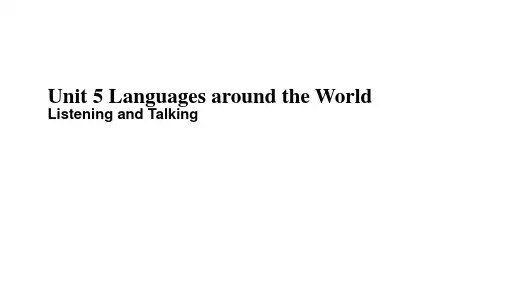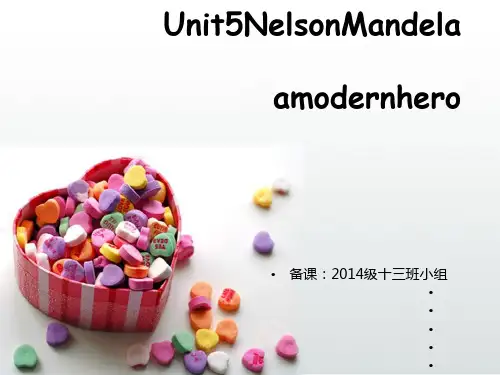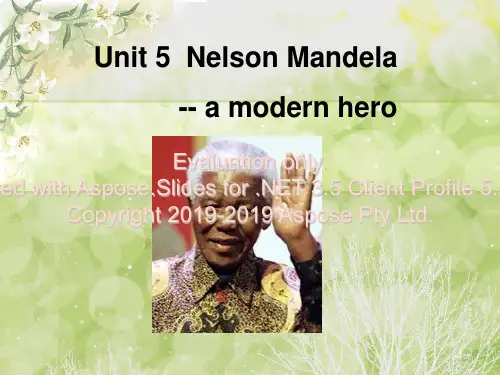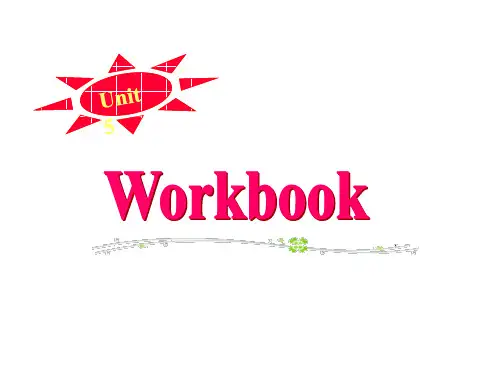人教版高中英语必修一第五单元课件 PPT.
- 格式:ppt
- 大小:589.50 KB
- 文档页数:9
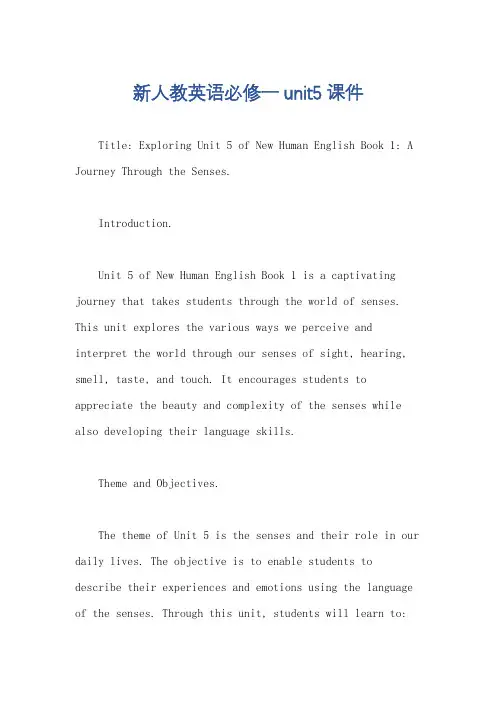
新人教英语必修一unit5课件Title: Exploring Unit 5 of New Human English Book 1: A Journey Through the Senses.Introduction.Unit 5 of New Human English Book 1 is a captivating journey that takes students through the world of senses. This unit explores the various ways we perceive and interpret the world through our senses of sight, hearing, smell, taste, and touch. It encourages students to appreciate the beauty and complexity of the senses while also developing their language skills.Theme and Objectives.The theme of Unit 5 is the senses and their role in our daily lives. The objective is to enable students to describe their experiences and emotions using the language of the senses. Through this unit, students will learn to:1. Describe people, places, and things usingdescriptive language related to the senses.2. Express their opinions and feelings about different experiences related to the senses.3. Comprehend and analyze texts that explore the senses and their impact on our lives.4. Develop their speaking and writing skills by discussing and writing about topics related to the senses.Key Concepts and Vocabulary.The key concepts in Unit 5 include the five senses, descriptive language, and emotional expressions. Some important vocabulary related to these concepts includes:Senses: sight, hearing, smell, taste, touch.Descriptive language: bright, noisy, fragrant, tasty,smooth.Emotional expressions: delighted, excited, amazed, horrified, disgusted.Text Analysis.The texts in Unit 5 are rich in descriptive language and emotional expressions. They encourage students to visualize scenes, feel emotions, and connect with the world through their senses. For example, a passage about a delicious meal may describe the aroma, taste, and texture of the food, making the reader feel as if they are experiencing it themselves. Similarly, a description of a beautiful sunset may evoke feelings of awe and wonder.Activities and Tasks.To engage students actively in Unit 5, a variety of activities and tasks can be designed. These include:1. Sensory Exploration: Students can explore theirsenses by performing experiments or engaging in activities that stimulate each sense. For example, they can smell different fragrances, taste different foods, or feel textures. They can then discuss their experiences using the language learned in the unit.2. Descriptive Writing: Students can practice descriptive writing by describing a person, place, or thing using the language of the senses. They can focus on using adjectives and adjective phrases to create vivid and感官丰富的描述。


